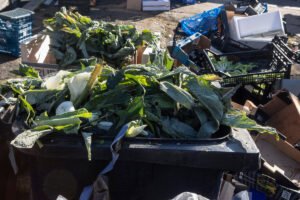Wednesday, 18 February 2026
China adopts new law aimed at protecting and ensuring food security within country
The Chinese government recognises that food security is integral to national security, as rising food prices, export bans, and climate change can lead to instability, as seen in recent examples…

The Chinese government recognises that food security is integral to national security, as rising food prices, export bans, and climate change can lead to instability, as seen in recent examples
China’s top legislative body has recently passed a new food security law aimed at ensuring a steady supply of grain and related products. The country, with only 9 per cent of the world’s arable land, feeds over 1.4 billion people, making the enactment of this law a crucial step. Though China has a positive food security situation, the growing demand for grain poses challenges like limited and low-quality arable land and difficulty in securing stable and higher grain output. The new law addresses these issues, and China needs to ‘ensure absolute security in staple foods and basic self-sufficiency in grains.’ The law will become effective from June 1, 2024.
The law emphasises the significance of protecting arable land, which includes permanent basic cropland, ecosystems, and urban development boundaries. The state shall restrict the occupation of farmland and the conversion of farmland to other forms of land use, such as forests and grassland.
Regarding grain production, the law emphasises the establishment of a national agricultural germplasm resource bank and the improvement of the national system for cultivating superior crop varieties. The state will promote mechanised technologies and build capacity for disaster prevention, mitigation, and relief in grain production.
The law also lays down requirements for reducing food waste throughout various processes, ranging from grain production to consumption. It makes provisions concerning grain reserves, distribution, processing, and emergency response.
The new legislation on food security is of great importance to pushing forward Chinese modernisation. It lays a solid legal foundation for advancing China’s system and capacity for food security governance. China has seen a grain harvest of over 650 million tonnes for nine consecutive years, with the staple food self-sufficiency rate above 100 per cent and the grain self-sufficiency rate above 95 per cent.
China is taking steps to increase its domestic agricultural production because it is an important part of ensuring food security. This is evident from the various measures implemented in recent years, supported by significant financial resources. The Chinese government recognises that food security is integral to national security, as rising food prices, export bans, and climate change can lead to instability, as seen in recent examples. This instability can even affect countries that can source food from other regions.
However, it is uncertain if China can achieve its goals in the short term due to the complex interconnected domestic challenges it faces, in addition to the current geopolitical environment.
Technology
Carlsberg Launches AI-Crafted Lunar New Year Packaging
Feb 17, 2026 | Beverages
FAO Experts Assess Risk of Antimicrobial Resistance Spreading via Food Loss and Waste
Feb 17, 2026 | Sustainability
Setting the Standard for Sustainable Ingredients
Feb 16, 2026 | Ingredients
Food Testing
Redefining Trust in Organic Foods through Independent Testing
Feb 13, 2026 | Food Safety and Testing
AFNOR International Eyes Global Food Safety Growth with HACCP Group Takeover
Feb 04, 2026 | Australia
More Popular
HUL Invests Rs. 824Cr to Acquire Stake in OZiva, Divests Holding in Nutritionalab
Feb 18, 2026 | Company News
New Australian Wine Future Fund to Boost Research and Venture Investment
Feb 18, 2026 | Australia
Cerealto Sells Pasta Unit to Specialist Player Cerealis
Feb 17, 2026 | Company News






